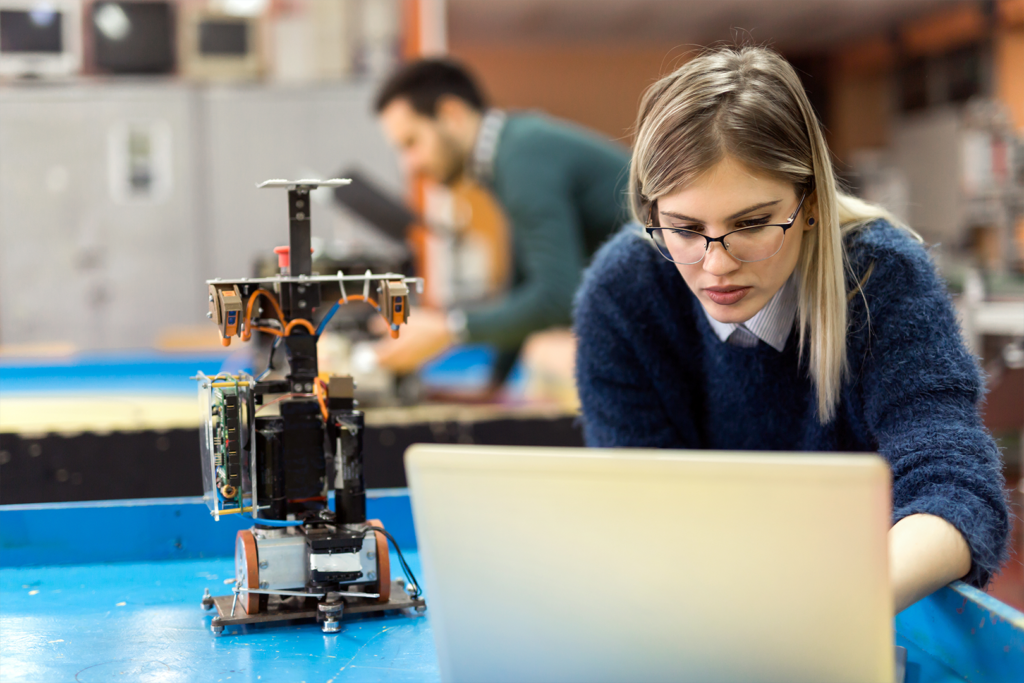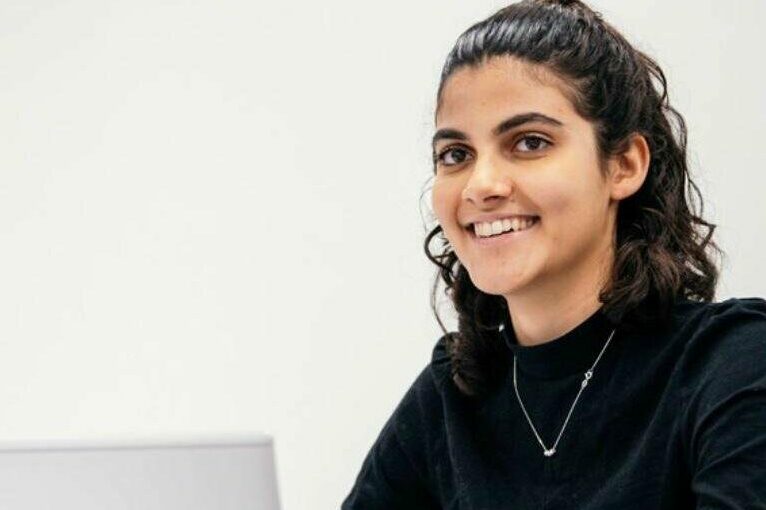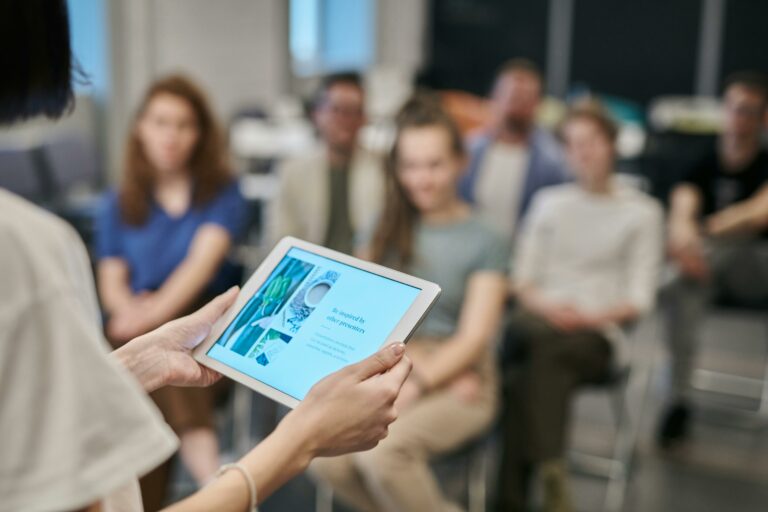
I’ve always been interested in STEM, all the way through the whole of secondary school. I’ve been really passionate about understanding the impact that STEM can have on solving society’s biggest problems. And that’s why I applied for the Arkwright Scholarship, through the Smallpeice Trust. It provided me with the funds to embark on my own initiatives, whether that’s within school or outside of school. In addition, it also provided a really extensive network of other engineers and engineering leaders. And that was really invaluable for me.
It’s definitely accelerated my engineering journey and it provided me with the funds to start my school’s first robotics club, which inspired me to continue with outreach to younger students, especially younger girls. From that I was inspired to start a technology and ethics forum within my school, then that developed into a movement which I’m currently working on called the Tech Switch. I founded it with a friend, Adam Flanagan, who I met at a McKinsey internship, and I used my scholarship fund to co-found it.
Through Tech Switch we started the COVID Challenge last April, encouraging university students to create innovative tech solutions, addressing the social and economic hardships stemming from COVID-19.
It was basically a hackathon, and it was entirely virtual. We had over 220 people enter and we put them in random WhatsApp groups and told them to work together and come back in three days with a pitch. And they all did. And that was really, really incredible to see. So we ended up with 32 different tech-based projects, across 85 different disciplines, from 50-plus universities over five different countries. And 51% of the people were female, which was great as well.
The competition was judged externally, including a member of MIT’s COVID-response unit, founders of startups, entrepreneurs, and leaders in the field, including Kevin Stenson – CEO of the Smallpeice Trust. Many of the projects are still going now, and the winner was Urbani.
Urbani is an immunity passport, and at the time back in April, this was quite a novel idea. They came up with this two weeks before the government started discussing it. It’s an app that allows people to plan their movements in order to avoid places where many individuals have reported having contracted symptoms over the past 48 hours.
If young females don’t see women-led startups being invested in then that will discourage young women from pursuing a career in STEM
The Sixth Form winner was really impressive as these were Year 12 and 13 students. They created an app called HomeMade, which offers you recipes to minimise supermarket trips by encouraging more efficient use of ingredients that you have in the house. So if people are isolating, or don’t want to risk going to the supermarket, they can spend more effectively.
Tech Switch is a platform to empower young leaders of the future to act with moral, financial and technological astuteness. I think young people have a really powerful role to play in helping businesses face up to the challenges and opportunities resulting from disruptive technologies. There’s a news feed, articles, interviews and I’m starting a podcast as well.
I’m currently studying at the Dyson Institute. When I joined I wanted to make a positive impact, and I was surprised to see the emphasis put on corporate social environmental responsibility, and how much say I’ve been able to have on the sustainability within the design process. The James Dyson Foundation do a lot of good work in schools, so I’m trying to create a conversation between them and the Smallpeice Trust because I think their values are very much aligned. They both want to get more people into engineering.

I’m also head of diversity and wellbeing at the Dyson Institute. So I’m looking at how we can increase the variety of schools that we recruit from and how we increase accessibility for people from diverse backgrounds, which I think is so important. And although I’m the only female in the team I’m in, Dyson are recognising how important and impactful it is to have diversity in their teams, and I’d like to think I can help push for that.
I have thought a lot about why there’s a gender gap in STEM roles in the UK. I would say there are three key solutions. So the first one is to approach the recruitment departments of large engineering corporations and also universities offering engineering courses. Recruitment processes need to be looked at and sorted out, especially with increasing use of automated video interviews. Many engineering companies use AI to analyse people’s performance. But the data that they use is actually looking at past traits of successful people at the company. So if you take a predominantly male industry like engineering, you’re not getting as many females getting into senior leadership roles. Therefore, any characteristics which are similar to that of a woman would not be seen to be successful by the AI. So it introduces discrimination. And that goes for people with disabilities and people from different cultures.
Mentorship is also really important, and that can be achieved either by charities like the Smallpeice Trust or within a company. I think the Smallpeice Trust and Arkwright have done a really great job providing those mentorship opportunities and I genuinely can’t stress how important and useful mentoring has been for me personally.
I also think venture capital firms need to invest in female-led startups. Although that feels a long way from choosing a university degree, it’s a vicious circle: if young females don’t see women-led startups being invested in then that will discourage young women from pursuing a career in STEM, which means you also don’t have as many mentors. So it’s all about breaking that vicious circle.
Anoushka Patel was talking to Daniel Brigham



